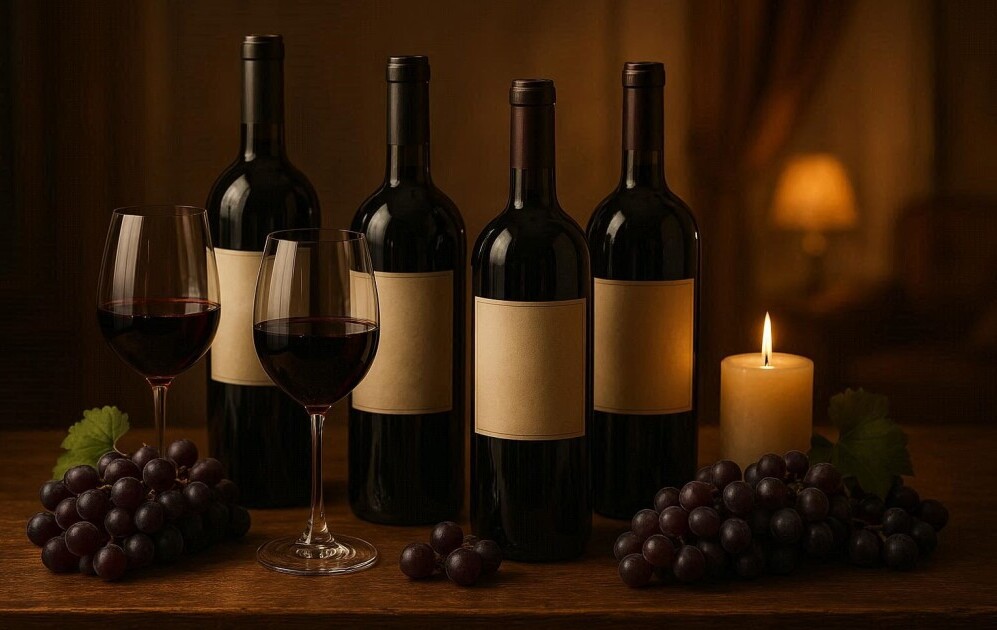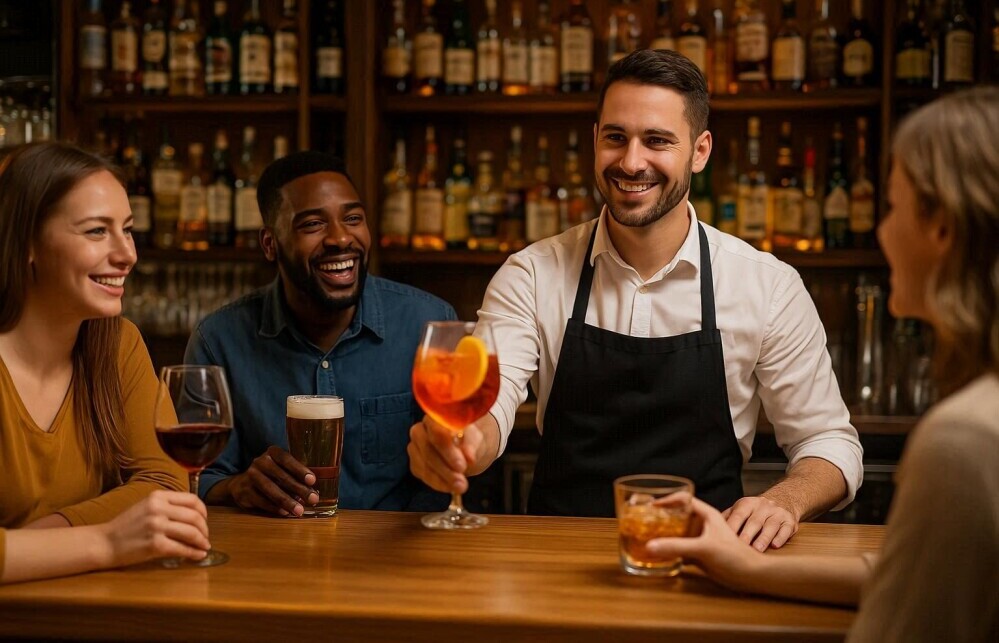If you’re working hard to lose weight but still want to enjoy a drink now and then, understanding how alcohol interacts with your body is really important. Alcohol and weight loss can feel like a tricky combo, but with a little know-how, you can make choices that fit your goals without giving up your social life. I (Sophie) have spent a lot of time figuring out how to balance healthy habits with real life, and I want to break down the main things you’ll want to know.

How Alcohol Affects Weight Loss
Alcohol has calories, but not much else in terms of nutrition. Most popular drinks are loaded with what are called “empty calories” because they don’t give you any real nutrients, just energy that your body often stores as fat. A standard beer or glass of wine often packs more calories than people expect, and cocktails can sneak in a ton of sugar too. Even more, alcohol slows down your body’s ability to burn fat, since your liver has to process the alcohol first before dealing with the rest of your food.
Besides the calories, drinking can affect your choices. When I’m out with friends and have a couple of cocktails, I notice I’m a lot more likely to order greasy snacks or dessert. Science backs this up. Studies show people tend to eat more poor-quality food on days they drink than on days they don’t. If you want to dig into this more, the research from the American Journal of Clinical Nutrition highlights how alcohol can mess with impulse control and appetite, leading to overeating. [Source]
The Metabolic Impact of Alcohol
Alcohol does more than just add calories to your day. It also changes how your body processes food. When you drink, your metabolism shifts. Instead of breaking down fat or carbohydrates first, your liver works hard to filter out the alcohol. This means burning fat basically pauses until the alcohol is processed, slowing weight loss progress. On top of that, alcohol inhibits nutrient absorption in the small intestine, so you might not be getting all the vitamins and minerals from your healthy meals. That’s a double whammy: fewer nutrients and a higher chance of storing extra calories as fat.
Another thing I’ve noticed is how even a couple of drinks can lead to feeling sluggish the next day, which makes it pretty unmotivating to stick to workout routines. Reduced energy means you’re less likely to be active and burn even more calories, creating a cycle that keeps weight from dropping.
It can also affect your sleep schedule, making it harder to catch quality rest—the kind your body truly needs for muscle recovery and metabolic health. Lack of deep sleep leads to increased cravings throughout the next day, which chain-reaction style, can throw your entire meal plan off course. With less restful sleep, weight loss can slow down.

Water Retention and Bloating
Alcohol is a diuretic, meaning it pushes a lot of water out of your body at first, but then causes you to hold onto fluids later. It’s strange but true. When enjoying a night out, I sometimes notice puffy hands or a bloated face the next morning. That’s water weight caused by your body trying to balance out dehydration after drinking.
Regular drinking can magnify this effect. Not only do you see the scales fluctuate because of water weight, but persistent bloating can make sticking to a weight loss plan feel frustrating, even when progress is happening underneath it all. Also, it can mask true fat loss. If you’re checking in on your results, always keep in mind that bloating might be making things look less impressive than they really are. A few days off drinking and staying hydrated will usually let you spot real progress.
Alcohol and Appetite: Why It’s Harder to Make Healthy Choices
Once the buzz hits, keeping your eating goals on track can get a lot tougher. Alcohol increases appetite for most people and lowers your ability to resist unhealthy foods. It’s easy to finish off a plate of nachos or reach for late-night pizza without even thinking about it. Research shows that people who drink are more likely to eat foods high in fat, salt, and sugar compared to days they skip alcohol. [Source]
Even if you stick to one or two drinks, the lowered inhibition makes slipping up on your eating plan much more likely. This pattern can really slow or even reverse your results, and adding hidden calories to your week can build up faster than you expect. If you’re worried about this, try planning your meals ahead on nights you know you’ll be having a drink and keep healthy options nearby to make good decisions easier.
Guidelines for Drinking While Losing Weight
The CDC says moderation is up to one drink per day for women and up to two for men, but if you’re actively working on weight loss, you may want to cut back even further. Treating alcohol like dessert—a once-in-awhile thing—can help keep calories under control. I’ve personally done a lot better with my goals when I pick either a small treat or a drink at night, but not both.
If you do choose to drink, being strategic with your choices makes a real difference. Skip creamy or sweet cocktails (like pina coladas and margaritas) and sugary mixers, which load extra calories on top of the alcohol itself. I tend to opt for something lighter, and I always drink water in between alcoholic drinks to slow down and cut the urge to munch.
It’s also smart to time your drinking around important workouts or weigh-ins. For example, if you need your energy for a big Saturday workout, you might decide to save the drinking for another time. Learning your own patterns and knowing when you’re most likely to make good decisions can keep progress rolling. Social pressure can be tough, so having a polite “no thank you” ready can take off some of the awkwardness if you’re skipping drinks for your health.

4 Low Calorie Alcoholic Drinks for Weight Loss
Trimming back on calories doesn’t mean you have to skip happy hour. Here are some go-to options I lean on if I want a drink without blowing my calorie budget:
- Red Wine (125 Calories for 5 Oz)
Dry reds like cabernet sauvignon or syrah are on the lower calorie end of wine choices. There’s been a lot of talk about the heart-health perks of red wine, but most of it isn’t proven in long-term studies. Still, a 5-ounce pour sits at about 125 calories and is satisfying if sipped slowly. [Source] - Light Beer (About 100 Calories for 12 Oz)
When it comes to beer, lighter versions go easier on the waistline. A typical 12-ounce light beer has around 100 calories, which saves you at least 50 compared to a regular brew of the same size. Not a bad swap for game nights or backyard hangs. - Booze on the Rocks (About 100 Calories for 1.5 Oz)
Vodka, tequila, whiskey, gin—the calorie count for all these liquors is pretty similar. If you skip sugary mixers and just go for one shot over ice or with club soda, you’re looking at about 100 calories. That’s a simple choice if you’re keeping track. - Champagne (About 85 Calories for 4 Oz)
Bubbly saves calories compared to most wines, with a standard glass (about 4 ounces) ringing in at roughly 85 calories. The fizz might even help you feel full faster, so you’re less likely to reach for a second glass. Research shows carbonation can lead to increased feelings of fullness. [Source]
Things to Keep in Mind Before Including Alcohol in Your Weight Loss Plan
It can be easy to lose track of drinks over the course of a night. Planning ahead pays off. Here are a few practical tips I rely on to help manage drinking while not derailing progress:
- Set Limits: Decide in advance how many drinks you’ll have. Sticking to your plan is a lot easier if you’ve already made the choice.
- Track Your Intake: Consider keeping a food and drink log. Tracking makes you more aware of how many calories those drinks add up to.
- Eat Before Drinking: Having a healthy meal or snack before you go out lessens the urge to binge on junk food later.
- Stay Hydrated: Drinking a glass of water between alcoholic drinks slows you down, keeps you hydrated, and helps avoid that dry-mouth feeling that can lead to extra snacking.
- Focus on Socializing: Remember that catching up with friends and having fun doesn’t always need a drink in hand. Try switching focus to conversation or dancing rather than the booze.
- Have Alcohol-Free Nights: Plan some nights during the week where you skip alcohol completely. This can give your body a break and help set healthy limits. It also lets you track your progress with a clearer mind and avoid that “all or nothing” mentality.
Frequently Asked Questions
Can I drink alcohol and still lose weight?
If you keep your drinking to moderate levels and watch your overall calorie intake, it’s possible to fit alcohol into a weight loss plan. Picking lower calorie options, drinking less frequently, and planning ahead are all helpful strategies.
How many drinks are too many?
The CDC’s limits are a good max to shoot for, but cutting back even further is really helpful while trying to lose weight. Staying mindful makes it easier to avoid the unwanted side effects of overdrinking.
What if I blow my calorie budget with drinks and snacks?
One off-night won’t stop your progress. Try not to stress, get back to your plan the next day, and learn from the experience. Building better habits takes time.
Are there any health benefits to alcohol?
Some research talks about mild benefits, like the antioxidants in red wine, but the risks of overdrinking usually outweigh those perks. For weight loss, any “benefit” is best seen as a fun extra, not a reason to drink more.
Making Alcohol Work With Your Weight Loss Goals
Drinking alcohol while working on weight loss can be a challenge, but it’s totally doable with some planning and honest tracking. Focusing on moderation, picking lighter drinks, avoiding high calorie mixers, and watching what you eat during nights out all go a long way. I’ve found that the times I succeed are when I treat booze as an occasional treat and stay on top of my healthy habits.
Hydration, balanced meals, and fun that doesn’t revolve around drinking help too. Everyone’s adventure is unique, and what works for one person won’t always work for another, but having a solid plan and being mindful of your choices really helps keep things on track. Wrapping up, thoughtful choices let you enjoy a drink and keep your weight loss moving forward.

